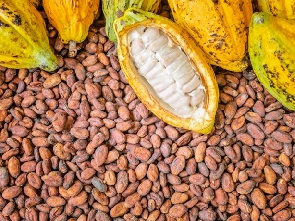 Many cocoa farmers still face escalating production costs
Many cocoa farmers still face escalating production costs
The National President of the Ghana Cooperative Cocoa Farmers Association, Issifu Issaka, has called for reforms in Ghana's cocoa pricing mechanism to better benefit local farmers as they battle with rising costs of production.
This comes as global cocoa prices have reached unprecedented heights in 2024 due to persistent supply shortages and adverse weather conditions.
Ghana and Cote d'Ivoire, which produce about 60% of the world's cocoa, are at the heart of this market upheaval.
In April 2024, cocoa prices surged to nearly $10,000 per ton, a historic peak driven by declining harvests and soaring demand.
The 2023/2024 season is expected to end with a global deficit of 475,000 tons, significantly higher than earlier estimates.
This shortfall is largely due to climate change, El Niño-induced weather disruptions, and fungal diseases like "black pod disease," which have collectively reduced yields by 40-50%.
However, many Ghanaian farmers are not gaining from this market increase.
In an interview with JoyNews, Issaka suggested adopting a spot market system where farmers could directly benefit from international market prices.
"If farmers receive at least 70% of the gross revenue, around $7,000 per ton at current prices, it would provide a sustainable living income. This would enable them to invest in alternative livelihoods and improve their overall standard of living,” he said.
Meanwhile, COCOBOD has raised the guaranteed price for cocoa from GH¢3,000 to GH¢3,100 per 64kg bag, a 3.3% increase for the 2024/2025 crop season.
While this adjustment reflects rising global market trends, many farmers still face escalating production costs and limited access to financing, which erode potential profits.
The 2024/2025 season is expected to bring further price increases due to ongoing supply constraints and growing global demand.
While these higher prices could provide an economic boost to farmers, systemic inefficiencies and inequalities in the supply chain often mean these benefits fail to reach those who need them most.
ID/AE
Meanwhile, watch the latest episode of Trending GH below: